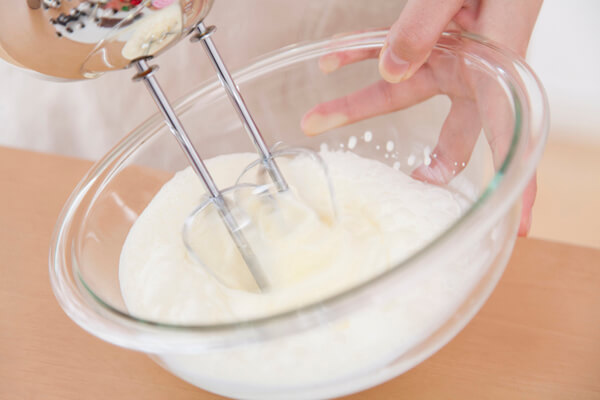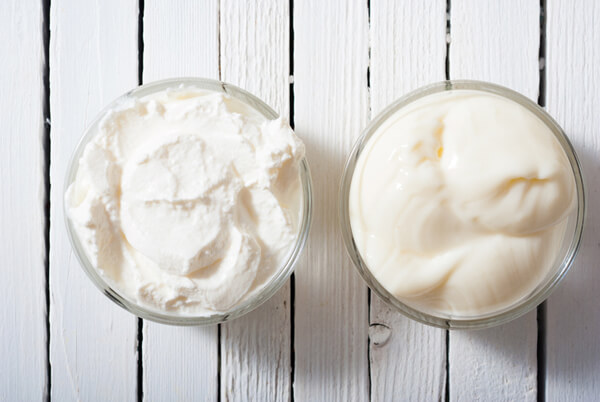Butter, whether used in flaky pastries or to add a smooth texture in cooking, brings us an unparalleled taste experience. Its unique creamy flavor and delicate texture make many classic dishes and desserts irresistible. Whether it’s the rich taste of butter or the refreshing alternative of plant-based butter, both have found their way into our lives in different ways. With the rise of health-conscious eating, more people are paying attention to the nutritional content of plant-based butter and animal butter and their effects on health. Have you ever wondered what the difference is between plant-based butter and animal butter? How do they each impact our health and food choices?
Plant-based butter and animal butter differ significantly in their sources, ingredients, and nutritional value. Plant-based butter typically contains no cholesterol, making it suitable for vegan and low-cholesterol diets. On the other hand, animal butter is rich in saturated fats and cholesterol, offering a distinctive creamy flavor. Plant-based butter, mostly derived from vegetable oils, has a lighter taste and caters to healthier eating needs, while animal butter, such as butter, remains an important ingredient in many traditional dishes due to its rich taste.
In this article, we will give you a comprehensive understanding of the advantages and disadvantages of both types of butter, helping you make the best choice based on your personal needs. Now, let’s dive into the world of butter and discover the one that suits your health best.

What is Plant-Based Butter?
Plant-based butter is a solid fat made from plant-derived oils such as soybean oil, coconut oil, palm oil, and canola oil. These oils go through processing and hydrogenation to achieve a butter-like texture and taste. The main ingredient is plant oil, and after processing, it resembles the texture and flavor of traditional butter. Plant-based butter does not contain animal ingredients, making it suitable for vegans, lactose-intolerant individuals, and people with allergies. It is commonly used as a substitute for animal butter in baking, frying, and cooking various dishes.
Common Types of Plant-Based Butter:
- Coconut Butter: Made from oil extracted from coconut flesh, it has a rich coconut flavor.
- Soy Butter: Made from soybean oil, it is suitable for vegan and dairy-free diets.
- Palm Butter: Made from oil extracted from palm fruit, it is firmer in texture and is often used in industrial food production.
What is animal butter?
Animal butter, often referring to butter, is a fat extracted from animal dairy products, usually cow’s milk or goat’s milk, through processes like churning and separating. The main component of butter is milk fat, which contains a high amount of saturated fat, cholesterol, and some water. Animal butter is commonly used in baking and cooking due to its unique creamy flavor and delicate texture. It plays a key role in many traditional dishes and desserts.
Types of animal butter:
- Butter: A solid fat obtained by churning and separating milk or cream. Butter is the most common type of animal butter, rich in milk fat and a distinctive creamy flavor.
- Lard: Extracted from pig fat, lard is commonly used in traditional Chinese cooking, especially for stir-frying and making pastry crusts.
- Ghee: Made from goat’s milk, ghee is less common and is typically used in specific traditional dishes.
Key Differences:
Source:
- Plant-based butter: Comes from plant oils.
- Animal butter: Comes from animal milk fats (such as cow’s milk or goat’s milk).
Composition:
- Plant-based butter: Mainly contains plant oils, with no cholesterol. It is suitable for vegetarian and dairy-free diets.
- Animal butter: Contains higher amounts of saturated fats and cholesterol. It usually provides a rich creamy flavor and smooth texture.
Flavor and Usage:
- Plant-based butter: Has a lighter flavor and is suitable for replacing traditional butter in vegetarian, dairy-free, or low-cholesterol diets.
- Animal butter: Has a strong creamy flavor and provides a unique taste and texture in traditional baking and cooking.
Nutritional Comparison of Plant-Based Butter and Animal Butter: Which is Better for Your Health?

Plant-based butter and animal butter have different nutritional components, each with its own advantages and disadvantages. Therefore, their impact on health depends on specific needs and usage.
Types of Fat
Plant-Based Butter:
Most plant-based butters contain more unsaturated fats (including monounsaturated and polyunsaturated fats), which are beneficial for cardiovascular health. For example, monounsaturated fats in oils like olive oil and canola oil help reduce “bad” cholesterol (LDL), while saturated fats in coconut oil and palm oil have more complex effects on health.
Animal Butter:
Animal butter (like butter) mainly contains saturated fats, which can raise “bad” cholesterol (LDL) levels. While the effects of saturated fats on health have been debated, long-term excessive intake is generally thought to increase the risk of cardiovascular diseases.
- Advantages: Animal butter contains natural saturated fats that help maintain the structure of cell membranes and provide energy for the body.
- Disadvantages: Excessive intake of saturated fats may cause abnormal blood lipids, increasing the risk of heart disease and arteriosclerosis.
Cholesterol
- Plant-Based Butter: Plant-based butter usually contains no cholesterol, making it an ideal choice for heart-healthy diets. For people needing to control cholesterol (such as those with high cholesterol), plant-based butter is a healthier option.
- Animal Butter: Animal butter (especially butter) contains higher levels of cholesterol. While moderate intake won’t directly raise cholesterol levels, excessive long-term consumption can increase the risk of heart disease.
Vitamins and Nutrients
Plant-Based Butter:
Plant-based butter is often rich in plant-based nutrients, such as vitamin E and Omega-3 fatty acids (especially from flaxseed or hempseed oil). These nutrients help with antioxidant activity, improve skin health, and promote heart health.
- Advantages: Plant-based butter is rich in natural plant chemicals, like antioxidants (e.g., vitamin E) and anti-inflammatory Omega-3 fatty acids, which combat free radical damage and reduce the risk of chronic diseases.
- Disadvantages: Some plant-based butters (such as those made with palm oil) contain higher amounts of saturated fats and may break down into unhealthy compounds when cooked at high temperatures.
Animal Butter:
Animal butter is rich in vitamins A, D, and other fat-soluble vitamins. Grass-fed butter typically contains more Omega-3 fatty acids and natural antioxidants. For individuals needing to supplement vitamins A and D (such as the older people or those with vitamin D deficiencies), animal butter can be a beneficial source.
- Advantages: The vitamin A and D in animal butter are beneficial for eye health, the immune system, and bone health.
- Disadvantages: Excessive intake of animal butter may increase fat and cholesterol intake, potentially impacting overall health.
Health Impacts
Plant-Based Butter:
Consuming plant-based butter in moderation, especially the varieties that are low in saturated fats and rich in unsaturated fats (such as olive oil-based butter), can benefit heart health. It helps lower cholesterol, reduce inflammation, and lower the risk of heart disease. Plant-based butter is an ideal replacement for animal butter for vegetarians and those with lactose intolerance.
- Advantages: Beneficial for cardiovascular health, helps control cholesterol levels, and is suitable for vegetarian and dairy-free diets.
- Disadvantages: If plant-based butter contains trans fats or excessive saturated fats, its health benefits may be greatly reduced.
Animal Butter:
Consuming animal butter in moderation, especially high-quality, grass-fed butter, can provide natural vitamins A and D as well as healthy saturated fats. The short-chain fatty acids in butter (like butyrate) are good for gut health and may positively affect metabolic health. However, excessive consumption of animal butter can increase the risk of cardiovascular diseases.
- Advantages: Natural vitamins A and D are good for immune system and bone health.
- Disadvantages: Excessive intake of saturated fats and cholesterol may lead to cardiovascular health issues.
Is Plant-Based Butter or Animal Butter More Expensive?

Generally, animal butter (like butter) is more expensive than plant-based butter. This can be attributed to several factors:
Higher Production Costs
- Limited Raw Materials: The main raw material for animal butter is milk or other dairy products. To produce 1 kilogram of butter, about 20 liters of milk are needed. This means that a large amount of dairy products must be produced to obtain a certain amount of butter, requiring more raw materials and a more complex production process.
- Dairy Farming Costs: Raising dairy cows requires a lot of feed, water, and large pastures. It also involves collecting, transporting, and storing milk. These factors make the cost of producing milk higher than the cost of producing plant oils.
Complex Processing
- Extraction and Refining Process: The production of animal butter (such as butter) is relatively complex, involving steps like removing fat from milk, separating cream, churning, and dehydrating. Each step requires precise operations, which adds difficulty and cost to the production process.
- Storage and Transport: Animal butter usually needs stricter temperature controls during transportation and storage to prevent spoilage.Maintaining butter and other animal butters at certain temperatures to avoid deterioration increases costs.
Market Demand and Supply
- Market Demand: Animal butter, like butter, is widely used in baking, cooking, and food processing. Its rich taste and flavor are irreplaceable in many traditional dishes and desserts, so there is consistently high demand. However, dairy production is limited by agricultural and livestock conditions and cannot be produced as widely as plant oils.
- Supply Chain Limitations: Compared to plant oils, the production of animal butter has a more complex supply chain and is affected by natural factors (such as milk production and climate changes). This makes the price of animal butter more vulnerable to supply shortages or market fluctuations.
Sustainability and Environmental Concerns
- Environmental Impact: Dairy farming has a relatively large environmental footprint, including greenhouse gas emissions, land use, and water consumption. These factors increase the production costs of dairy products, which are often reflected in the final price.
- Animal Welfare Costs: With growing consumer concern for animal welfare, many dairy producers adopt higher-cost farming methods, such as more humane treatment of cows. These additional costs also raise the price of animal butter.
Quality and Flavor Additives
- Unique Flavor and Texture: Animal butter (especially butter) has a rich dairy flavor and a smooth texture that is irreplaceable in baking and cooking. Due to its unique taste, many consumers are willing to pay a higher price for high-quality animal butter.
- Traditional Craftsmanship and High Quality: Some premium animal butters, like organic butter or unsalted butter, may use traditional or natural production methods, which increase the difficulty and cost of production, thereby raising the price.
Overall, both plant-based butter and animal butter have their unique nutritional characteristics and uses. When choosing between them, the key is to consider your personal health needs, taste preferences, and cooking purposes. For those seeking higher quality, flavor, and convenience, our cream whippers provide an innovative solution. Whether you prefer plant-based butter or animal butter, with our cream whippers, you can easily create smooth and delicate cream. This is perfect for baking, desserts, or everyday cooking. It’s quick and easy to use, preserving the most natural flavors while ensuring the quality and texture of the cream remain stable and long-lasting. Explore our cream whippers and add more possibilities and deliciousness to your cooking!